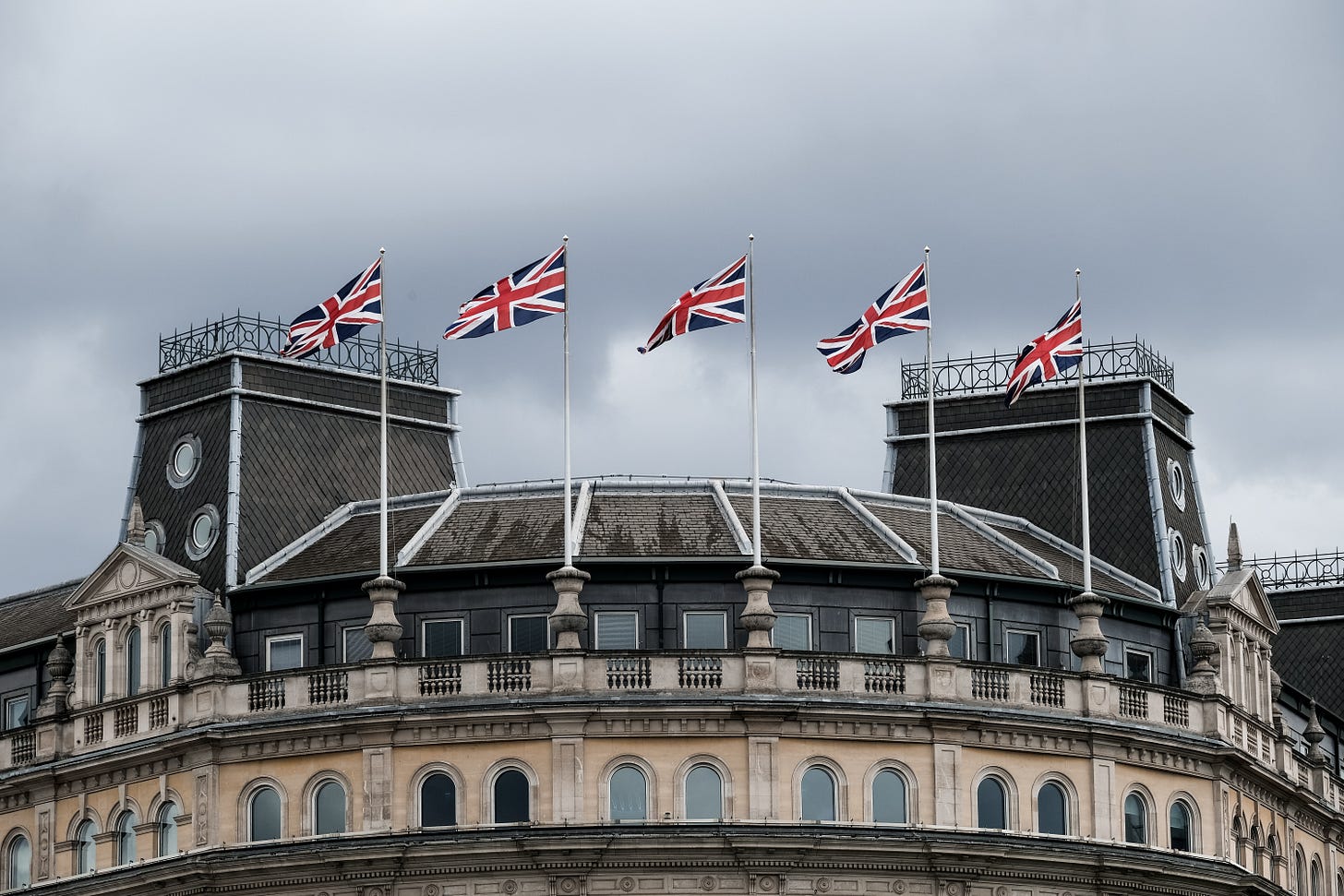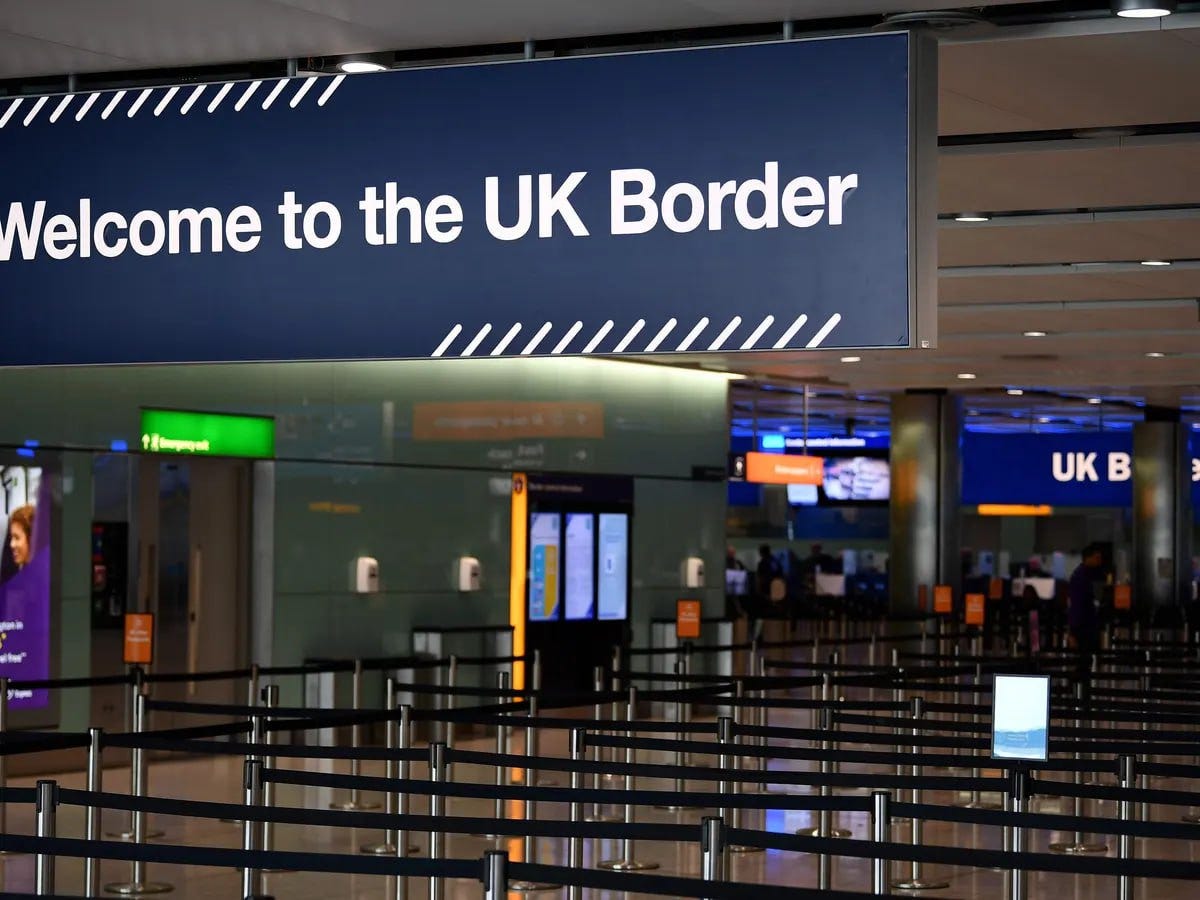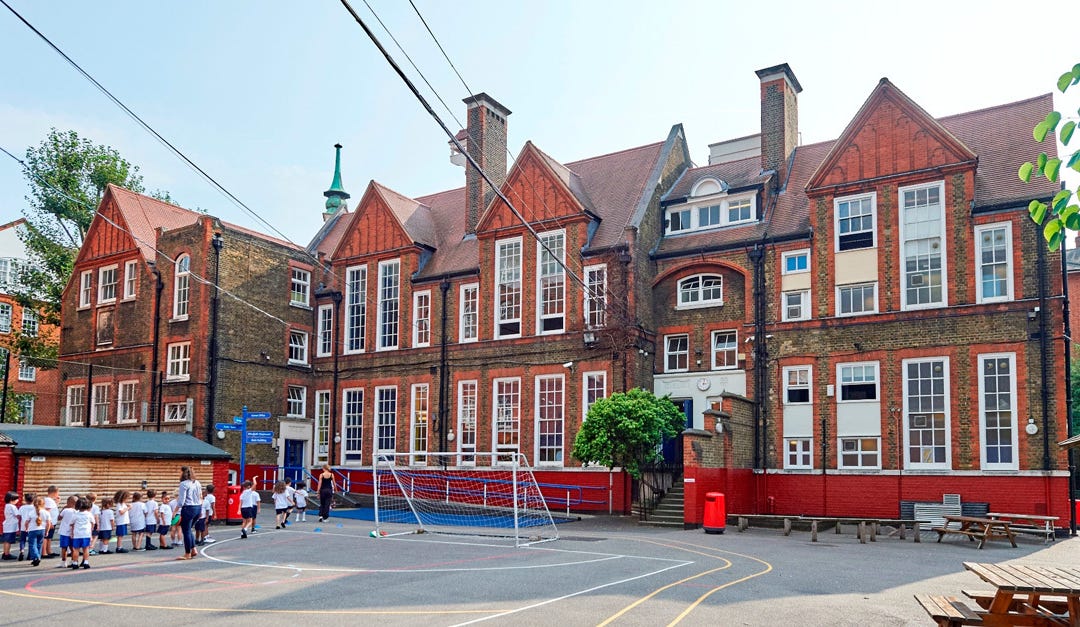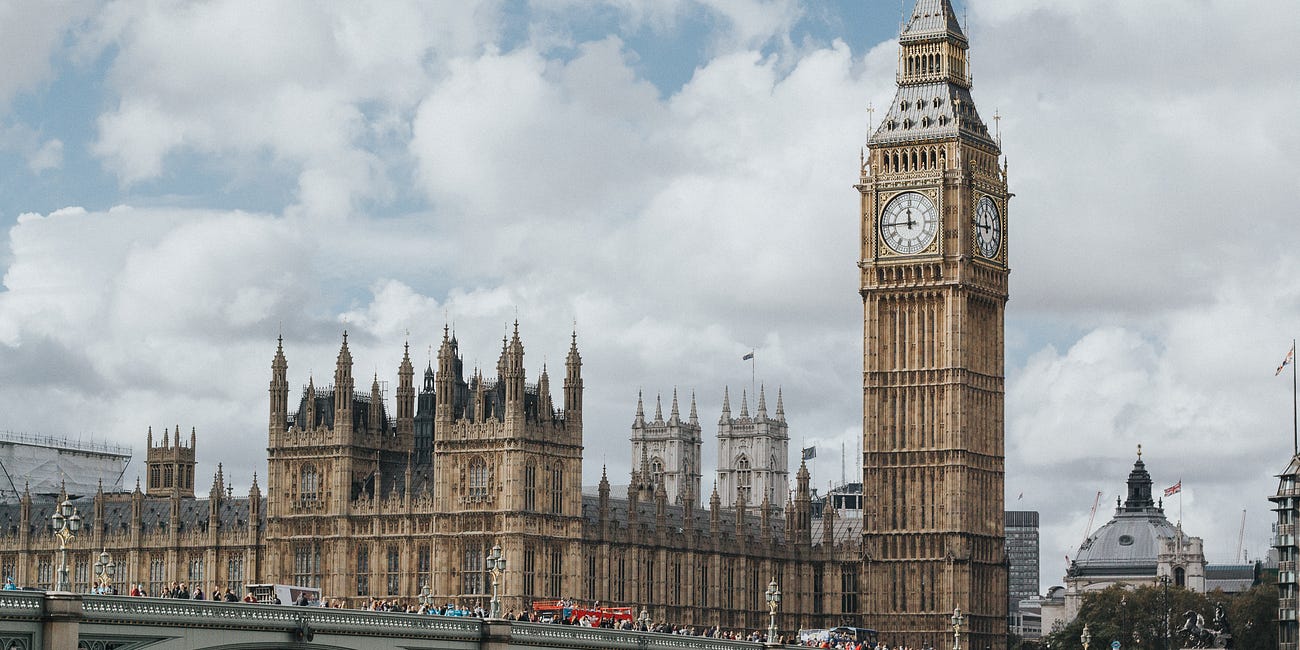The United Kingdom has changed profoundly over the course of the last 50 years. Many people know the basic statistics, such as native Britons being a minority in their own capital city. London went from a 90% native British city in 1971 to a 37% native British city as of the 2021 census. While changes in demographics are significant for cultural, national, and political reasons they also have profound implications on the wealth of a society and how that country’s government spends tax dollars.
Now, with a national debt exceeding two trillion pounds (£) and a 2022/2023 budget deficit of £137 billion it is time to look at how much of this cost is due to the diverse inhabitants of Britain. This piece is going to focus on services provided by the government, such as criminal justice, health, and education, rather than the traditional focuses on welfare spending. While welfare-related spending concerns are no less valid, they are a typical focus of diversity-related pieces and we seek to paint a broader picture.
And so, despite non-native Britons (both Western and non-Western) composing 26.5% of the English population, they account for 42% of all arrests in the country, occupying police time, and resources, and costing the British taxpayer billions a year to deal with.
In 1981, England (not the UK as a whole) had a population of some 45 million people, 95.4% of whom were of Western extraction. In that same year, the British state spent less than £ 2 billion on policing in the entire United Kingdom. Today, in England with a population exceeding 56 million the policing budget for England (and Wales) will exceed some £ 17 billion. With more than 10 million non-Westerners living in their midst, English taxpayers are funding an ever-expanding security state that is unable to deal with the rampant minority violence in the country.
This is not mere inflation, either. In Poland, a nation of some 38 million people, virtually all of whom are Polish, the police budget in 2022 was a mere £2.3 billion. Nor is this a difference in pay. The average police officer in Poland has an income of some £21,800 annually, while the average constable hired after 2013 in the United Kingdom will start at a salary of some £23,556, according to the UK Police Federation. The difference is clearly one of demographics.
Of course, public spending on criminal justice does not stop with an arrest. Britain’s prisons are overflowing. The British government recently triggered an emergency plan to begin housing prisoners in jails and local police stations to deal with overcrowding.
This is yet another area where ethnic diversity and the UK's burgeoning population of racial foreigners are causing the native British people to continue to have to sacrifice their safety, money, and resources for people who do not belong in Britain.
There are, by the latest count, 89,520 people in His Majesty's custody. The Ministry of Justice also expects the prison population to exceed 106,000 people by 2027, dramatically increasing capital costs as the country will be forced to build a raft of new detention facilities.
27%, or roughly 24,200 of the current prisoners are racial foreigners. It is clear the UK would not be facing a prison cell shortage if it were not for these non-native detainees. No diversity once again means that there would be no emergency to deal with.
Still, these people are in Britain and the fiscal cost of these prisoners is enormous. The British government spends roughly £48,409 for each prisoner it houses, meaning the cost of the non-British prison population is some £1.16 billion annually.
As if racially foreign criminals within Britain were not a serious enough concern, most nationalists are aware that the British state has busied itself importing tens of thousands of non-Western asylum seekers and is sparing no expense to gather up, house, feed, and maintain this population.
The British asylum system currently costs the taxpayer roughly £4 billion a year, but costs are increasingly rapidly. A report, and subsequent testimony, given before the House of Commons in 2023 indicates that by 2026 the cost of the asylum system in the United Kingdom will exceed £11 billion. Every pound of this spending can be marked as “unnecessary” in the eyes of any nationalist-oriented policymaker, especially at a time when the nation is running such an incredible deficit.
Another area of incredible spending, and one which is quickly bankrupting the British state, is that of healthcare.
In the United Kingdom funding for the English National Health System (NHS) comes from the Department of Health and Social Care, which has a 2023 budget of about £180 billion, roughly £160 billion of which goes directly to the NHS. On a per capita basis the NHS in England has been spending roughly £3,055 per person from 2010 onward, with slight increases each given year after adjustments for capital spending.
We have written before with regard to foreigners in the United Kingdom being much more likely to utilize ambulance and A&E services, substantially driving up healthcare expenditure in the UK. We have also written about how spending for diseases unique to minority populations is massively driving up NHS costs with one example being a February 2022 announcement by the NHS wherein it was announced they would be paying for "the most expensive drug in the world."
The drug in question is to treat a genetic disorder known as metachromatic leukodystrophy, this disease leads to nervous system and organ damage and has been linked to inbred populations. This has become a necessity due to the increasing size of the Pakistani, Indian, and other South Asian populations, which have a high propensity for inbreeding.
Still, to give a simple figure, assuming all other spending trajectories remained the same regardless of ethnicity, the NHS in England is spending some £45.6 billion a year on the non-Western and overall non-British population. This represents some 28.5% of the NHS budget in England and roughly 33.28% of the country’s budget deficit for 2023.
Yet another area of massive NHS spending is clinical negligence by medical staff. A 2021 report highlighted that clinical negligence administration, claims, payouts, and other related activities are costing the NHS some £8 billion annually. A 2023 NHS report went on to add some detail to these claims, revealing that ethnic minority NHS practitioners are more than 1.3 times as likely to be hit with a clinical negligence claim. Similarly, foreign-born practitioners in the United Kingdom are 1.8 times more likely to be found to be negligent in their duties.
Another significant arena of spending on non-Western non-British inhabitants of the United Kingdom is in the area of education. In 2023 the budget for schools in England reached roughly £57.3 billion, with per capita funding reaching some £6,600 per pupil. These numbers are by far the highest on record and are expected to continue to increase as the costs of maintaining schools are expected to increase by some 7% in the next fiscal year.
Still, with a school-age population of roughly 8.4 million in 2021/2022 the British state is spending an incredible amount of money educating non-Western non-British children. In the same 2021/2022 year native British pupils comprised only 64% of the school pupils in England, roughly 5.4 million natibe British children compared to some 3 million non-Western and non-British children.
Applying the per capita rate of £6,600 per pupil would indicate that some £20 billion of the English education budget is being spent on non-Western and non-British students. The native British are paying substantially in order to educate children who are not their own.

In total, we have outlined some £92.76 billion of excess services spending by the UK government for 2023. This figure represents some 68% of the current £137 billion deficit and raises a series of very interesting possibilities. It is very likely that if it were not for this spending on non-Britons, the required infrastructure spending due to population growth, and spending on programs such as Universal Credit (which surpassed £72 billion in 2022/2023) the British state would be in a much better, if not outright healthy, fiscal position.
This would enable the British government to invest excess funds in family-friendly policies to boost fertility rates or revitalize the national rail network while avoiding ridiculous projects such as HS-2.
Britain is a wealthy country with a productive British population, but a growing non-Western demographic cohort is impoverishing the nation. It is time to reverse this trend.
White Papers is attempting to double our donor base this summer! Please Become a Paid Subscriber and Help Us Bring About the Needed Policy Changes:
Zelle: whitepapersinstitute@protonmail.com
Buy us a coffee: https://www.buymeacoffee.com/wppi
Linktree: https://linktr.ee/wppi
Snail Mail: White Papers Policy, PO Box 192, Hancock, MD 21750









